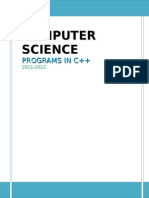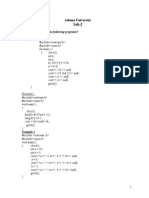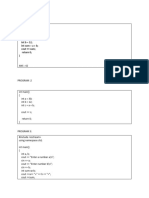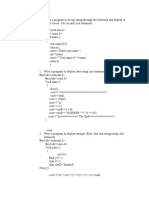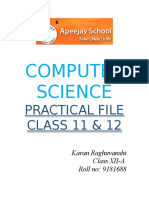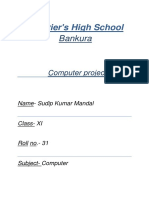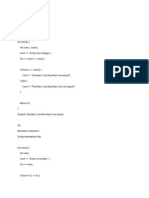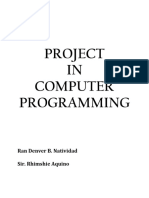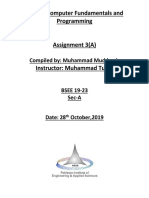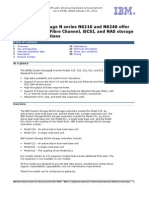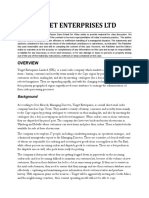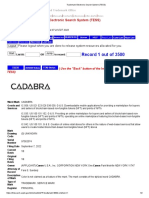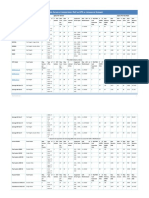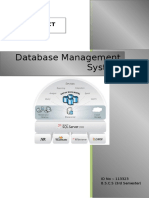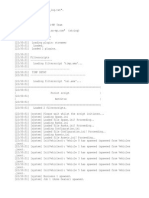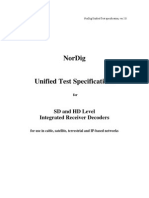0% found this document useful (0 votes)
32 views18 pagesC++ Practicals
C++ is a powerful programming language developed by Bjarne Stroustrup in 1983, used for creating various software applications. It supports Object-Oriented Programming and is known for its efficiency and speed. The document provides an overview of basic C++ program structure, sample programs for practice, and various programming concepts including control structures and functions.
Uploaded by
shehrozraja855Copyright
© © All Rights Reserved
We take content rights seriously. If you suspect this is your content, claim it here.
Available Formats
Download as DOCX, PDF, TXT or read online on Scribd
0% found this document useful (0 votes)
32 views18 pagesC++ Practicals
C++ is a powerful programming language developed by Bjarne Stroustrup in 1983, used for creating various software applications. It supports Object-Oriented Programming and is known for its efficiency and speed. The document provides an overview of basic C++ program structure, sample programs for practice, and various programming concepts including control structures and functions.
Uploaded by
shehrozraja855Copyright
© © All Rights Reserved
We take content rights seriously. If you suspect this is your content, claim it here.
Available Formats
Download as DOCX, PDF, TXT or read online on Scribd
/ 18


